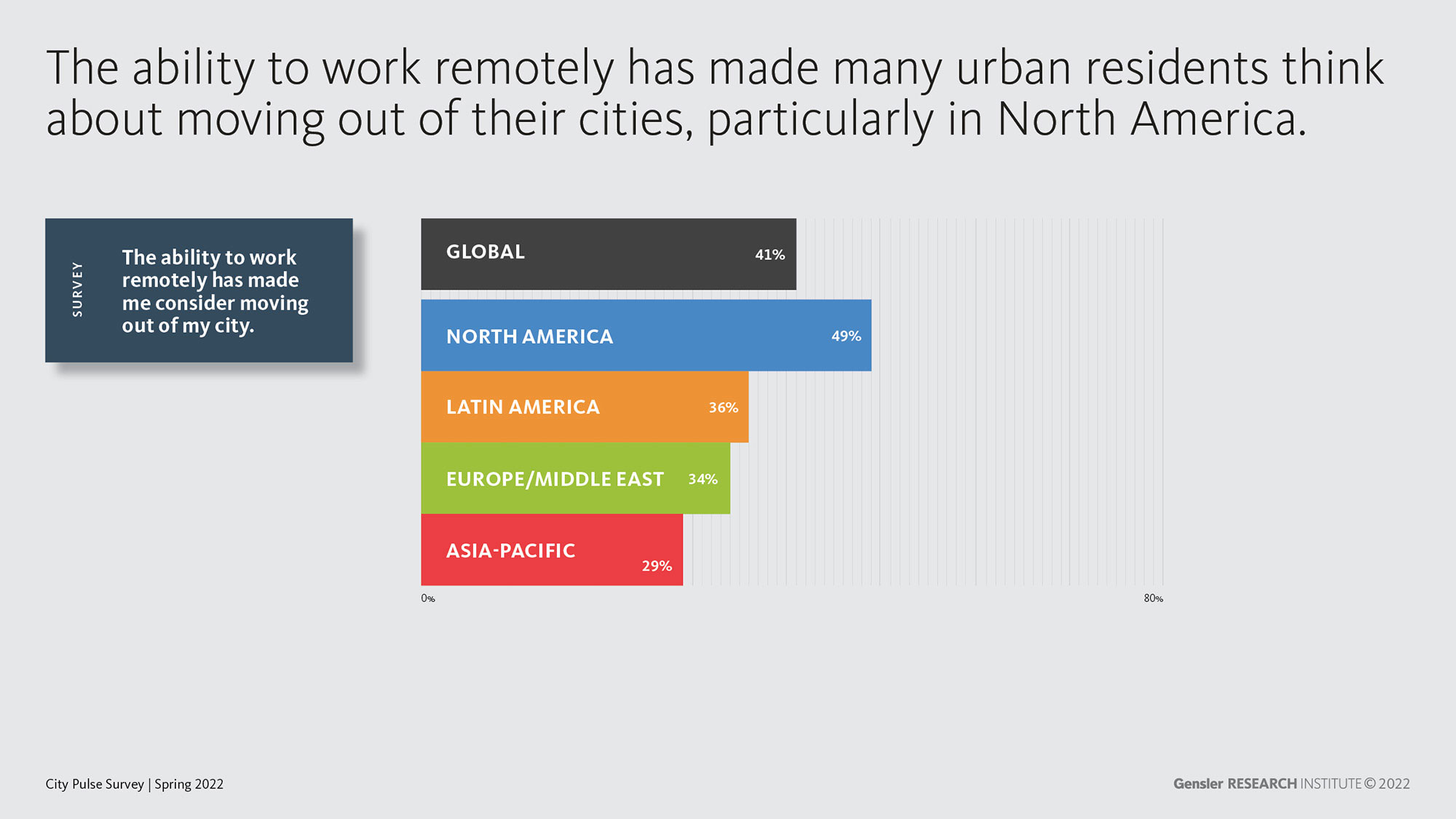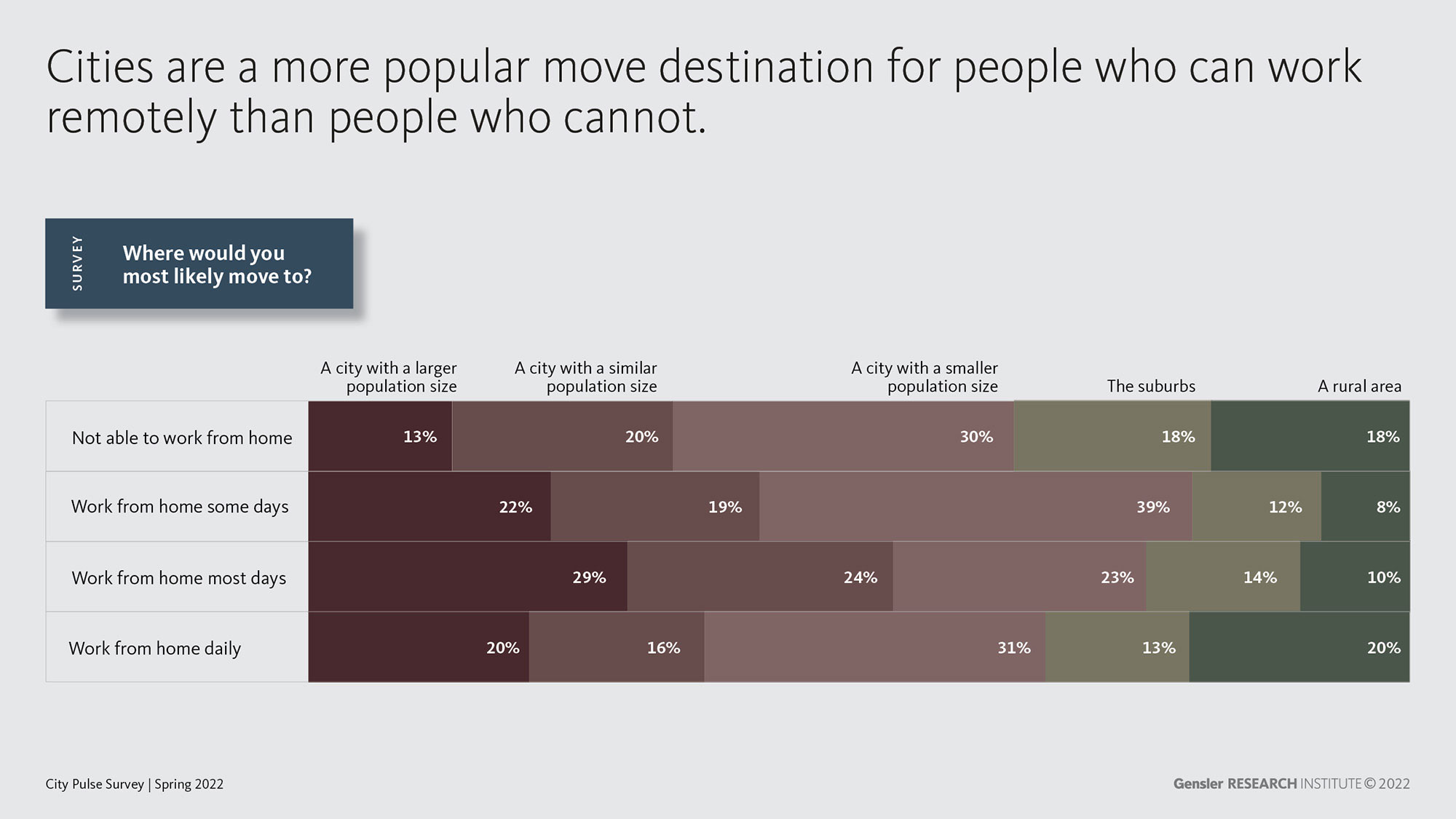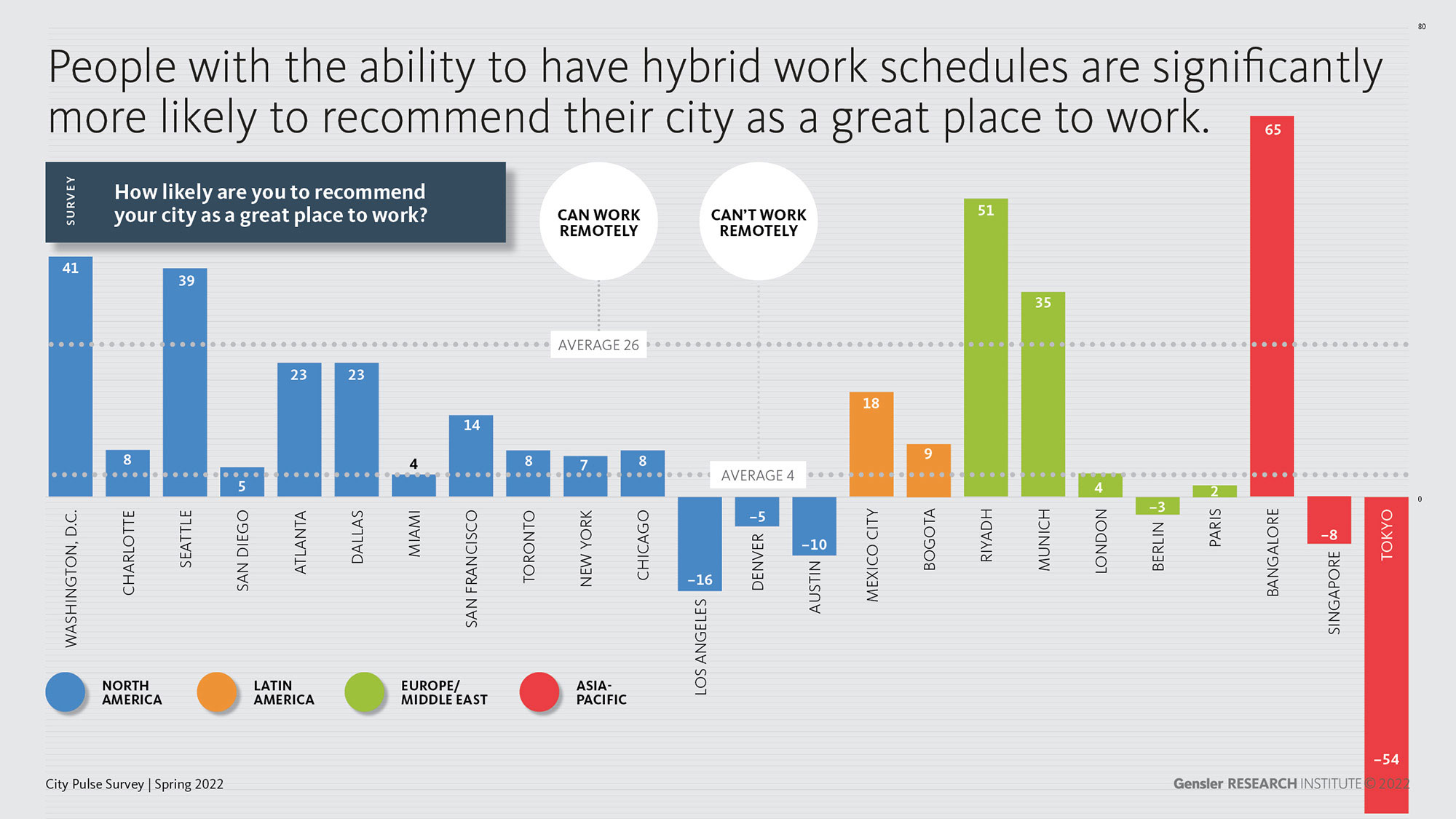What Gensler’s 2022 City Pulse Survey Says About Hybrid Work and Urban Life
June 09, 2022 | By Sofia Song, Stella Donovan
Throughout the pandemic, the adoption of hybrid and/or flexible work policies has posed critical questions for the future of cities. Will workers, the majority of whom are currently untethered from their offices at least part of the week, permanently leave metropolitan areas? And could this possible shift cause our downtowns to turn into ghost towns? Findings from Gensler’s Spring 2022 City Pulse Survey, a global survey of 12,500 urban residents across 25 cities in four global regions, show that people with remote work arrangements still tend to prefer city living — and that supporting flexible and hybrid work strategies at the city level is an opportunity to catalyze the rebirth of our downtowns and neighborhoods.
Remote work is causing some city dwellers to consider moving out of their cities.

Globally, 41% of respondents say that the ability to work remotely has made them want to move out of their current city. The nine cities with the highest percentage of remote workers who want to move are all located in the United States. A striking 71% of remote working respondents in Seattle, 65% in Washington, D.C., and 50% in San Francisco agree that they’ve considered moving. When looking at the data by generation, nearly half of Gen Z and Millennial respondents say they’ve considered moving as a result of remote work, compared to just 37% of Gen X respondents and 28% of Baby Boomers.
However, remote workers aren’t fleeing cities — they’re trying to find the right one.

We asked people with a range of remote work options, from daily to not-at-all, where they would most likely move. A majority (80%) of people who work from home some days (1-2) a week, 76% of people work from home most days (3-4) a week, and 67% of people who work from daily want to move to a city of some size. People who cannot work from home at all are more likely to want to leave city life than people who have the ability to work remotely.
People who have the option of hybrid work arrangements are more likely to recommend their cities as great places to work.

Finally, we used a widely used marketing metric called the Net Promoter Score (NPS) to measure the likelihood that a person will recommend their city as a great place to work. A positive NPS indicates that a city has more residents that would recommend their cities as great places to work than residents who would not. We found that people who have the ability to have hybrid work schedules have an NPS that is 22 points higher than people who don’t. Additionally, Tokyo, Berlin, and Denver, three cities with a negative NPS, are also the three cities in which respondents are least likely to be able to work remotely.
The bottom line: hybrid work doesn’t mean the death of cities. Instead, we should see it as a rebirth of our downtowns and neighborhoods.
If today’s growing class of remote or anywhere workers are still seeking urban living, many will be looking for cities that are great places for anywhere work — and that often boils down to cities that provide great neighborhoods, walkability, and a wide variety of places that support work.
From increased infrastructure and the creation of more third places that support hybrid work to building adaptation and new development, cities must prioritize effective and creative ways to support hybrid models of working. In order to stay competitive, cities must reimagine their downtowns to be more than hubs for big businesses — they must also evolve into lifestyle centers that support the anywhere workforce.
For media inquiries, email .


